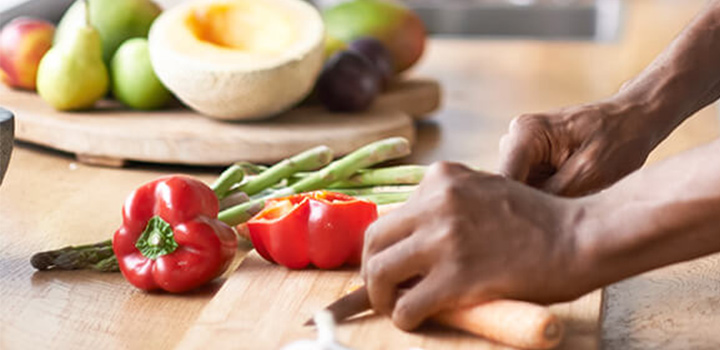Diets are changing. 3 ways to take back healthy habits

As a nation, we're experiencing an alarming rise in obesity and diet-related diseases. Something has changed about the way we interact with our food. Here's how to get ourselves back on track.
Life in South Africa has changed dramatically over the last two decades, and so has the way we eat. Economic growth and rapid urbanisation have resulted in an increase in access to fast food and processed food, and consequently our diets have changed.
In addition, our increasingly busy lifestyles often lead us to seek convenience in the form of fast foods, while it leaves too little time to exercise or get outdoors.
Here are three ways to take back healthy behaviours in our modern, urban environments:
1. Avoid ultra-processed foods
"These foods (including junk foods) are high in sugar and fat, and consequently high in kilojoules," says Discovery Vitality dietitian Terry Harris. "They provide energy, which can lead to weight gain if eaten in excess, without offering enough beneficial nutrients.
If you're short on time but love to snack, check out these convenient 'Good food on the go' recipes from the Vitality HealthyFood Studio for some easy, healthy alternatives.
2. Limit liquid sugar
Globally, people are consuming increasing quantities of sugar-sweetened foods and drinks, which are associated with weight gain and chronic diseases such as diabetes and heart disease.
Sugary drinks, in particular, are a major contributor to high sugar intake. These drinks (including 100% fruit juice) are a significant source of added sugar, but they don't make you feel full. This means a sugary drink with your meal could have you consuming many more kilojoules than you realise, because people tend not to eat less to compensate for the extra kilojoules they drink.
3. Get to grips with food labels
A 2015 study by the South African Journal of Science found that some of the largest shifts in food consumption were in sauces, dressings and condiments.
Learn how to interpret food labels and check them whenever you buy these items and other processed foods. Especially in things like sweet chili sauce and chutney, the sugar and salt content is higher than is healthy to add to your meal.
Harris adds, "Good nutrition starts with consistently healthy habits. It sounds basic, but just replacing sugary drinks with water and eating more vegetables can demonstrably improve your health."
So buy fresh, raw ingredients as much as possible and learn to put them together in fun, tasty ways (visit the Vitality HealthyFood Studio to find out how), and watch how the change in diet affects your overall wellbeing!
Enjoy healthy food without emptying your pockets
Good nutrition doesn't have to be expensive. The Vitality HealthyFood benefit lowers the cost barrier of healthy eating by giving you up to 25% cash back on a wide variety of healthy items at Pick n Pay or Woolworths. It also makes it really easy to spot healthy foods on store shelves - so activate the benefit today to save big on daily groceries!
Related articles
If that's the question, this article's for you! Matching cooking methods to the climate helps to get the most out of seasonal produce. Vitality dietitian, Terry Harris, shares the best ways to prep hearty meals in cold months.
Young diet lessons from an expert
What do nutrition experts feed their own families? We chat to Candice Smith, Discovery Vitality's Head of Nutrition Strategy and mother of three, about what her family eats - and get her to share her personal favourite stew recipe!
Think twice about those well-travelled avos
The increasing focus on the sustainability of our diets encourages us to not only consider the impact of what we eat on our health and waistlines, but also on the environment. Dr Craig Nossel, Head of Vitality Wellness: The Sunday Times, 11 June 2017